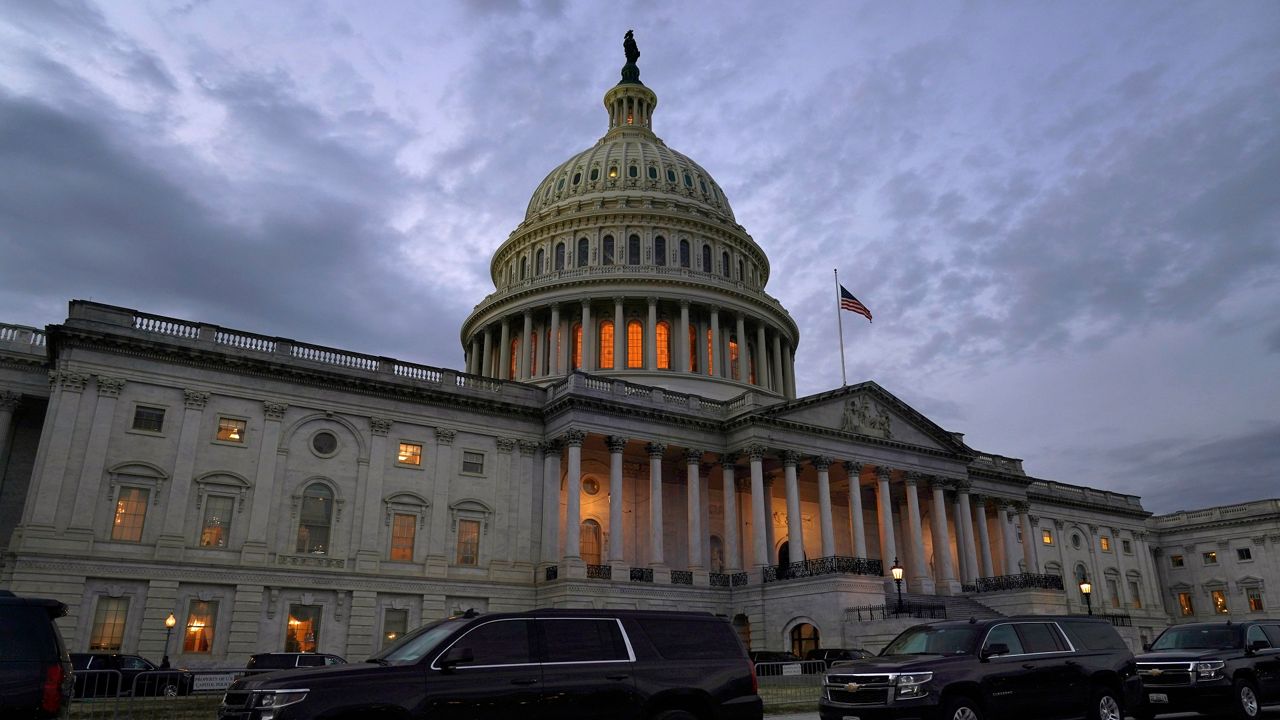The House of Representatives voted to override President Donald Trump’s veto of the annual defense spending bill on Monday night, setting up a possible showdown between Senate Republicans and the president.
The House voted 322-87, easily surpassing the two-thirds majority needed to advance the measure.
The Senate will vote to override Trump's veto Wednesday, Sen. Majority Leader McConnell said on Tuesday.
Congress has approved the bill, known as the National Defense Authorization Act, for nearly 60 years in a row. The current version affirms 3% pay raises for U.S. troops and authorizes more than $740 billion in military programs and construction.
Last week, President Trump vetoed the defense spending bill, as he had long threatened, for numerous reasons, chief among them being it did not contain language repealing Section 230, a key component of the Communications Decency Act that shields websites from liability for content posted by the platform’s users.
“Your failure to terminate the very dangerous national security risk of Section 230 will make our intelligence virtually impossible to conduct without everyone knowing what we are doing at every step,” Trump wrote Wednesday.
Additionally, Trump has taken issue with a provision of the bill mandating army bases bearing Confederate names be changed.
“Over the course of United States history, these locations have taken on significance to the American story and those who have helped write it that far transcends their namesakes,” Trump wrote Wednesday, adding: “I have been clear in my opposition to politically motivated attempts like this to wash away history and to dishonor the immense progress our country has fought for in realizing our founding principles.”
Congress has passed the NDAA for nearly six straight decades, and lawmakers aren’t looking to break the tradition this year. Both the House and Senate passed the measure by margins large enough to override a veto from the president.
Still, the override isn’t a guarantee, as some Republicans previously said they would not vote to override Trump.
Earlier this month, the Senate passed the NDAA by a margin of 84-13; the House of Representatives passed the measure with a veto-proof majority of 335-78. A two-thirds vote is needed in each chamber for the bill to become law without Trump’s signature.
A potential override of a veto would be a first for Trump and would come not long before he leaves office Jan. 20.
The dispute over social media content – a battle cry of conservatives who say the social media giants treat them unfairly – interjects an unrelated but complicated issue into a bill that Congress takes pride in having passed unfailingly for nearly 60 years. It follows Trump’s bid to sabotage thepackage with an earlier veto threat over Confederate base names.
Measures approved by the House and Senate would require the Pentagon to rename bases such as Fort Benning and Fort Hood named for Confederate generals, but Trump opposes the idea and has threatened a veto over it. The fight erupted this summer amid widespread protests over police killings of unarmed Black men and women, and Trump used the debate to try to appeal to white Southern voters nostalgic about the Confederacy.
The Associated Press contributed to this report.



